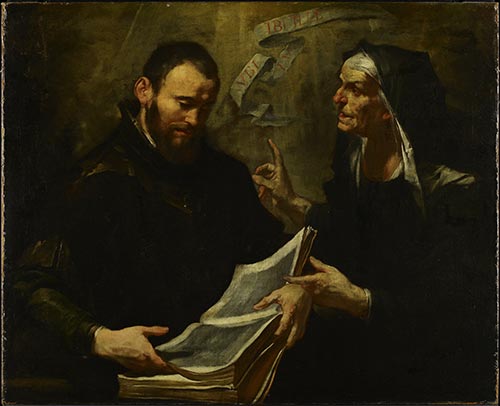
We commemorate Monica on 27 August.
Monica was a devout Christian, married to Patricius who was violent and unfaithful. Their son, Augustine, was also a handful. They scrimped and saved to secure the best education possible for him. After being widowed, Monica followed Augustine from Africa to Rome and then Milan. Here she was influenced by Bishop Ambrose and became deeply involved in the worship life of the church.
The day after Monica, we commemorate her son, Augustine of Hippo, on 28 August.
Lord God,
the light of the minds that know you,
the life of the souls that love you,
and the strength of the hearts that serve you:
Help us, following the example of your servant, Augustine of Hippo,
so to know you that we may truly love you,
and so to love you that we may fully serve you,
whom to serve is perfect freedom;
through Jesus Christ our Lord,
who lives and reigns with you and the Holy Spirit,
one God, now and for ever. Amen.
Whatever we think of Augustine, he is a towering influence on Christianity as we know it. The collect, above, and what follows is from the Great Cloud of Witnesses (The Episcopal Church – you may find that link very useful), complementing from For All the Saints (you may find this link also very useful). I am particularly taken by Augustine’s image that, “God, you have made us for yourself and our hearts are restless until we find our rest in you.”
Augustine, perhaps the greatest theologian in the history of Western Christianity, was born in 354 at Tagaste in North Africa. In his restless search for truth, he was attracted by Manichaeism and Neoplatonism, and was constantly engaged in an inner struggle with his personal morals. Finally, under the influence of his mother Monnica, Augustine surrendered to the Christian faith in the late summer of 386. He was baptized by Ambrose, Bishop of Milan, on Easter Eve in 387. After returning to North Africa in 391, Augustine found himself unexpectedly chosen by the people of Hippo to be a presbyter. Four years later he was chosen bishop of that city. His spiritual autobiography, The Confessions of St. Augustine, written shortly before 400 in the form of an extended prayer, is a classic of Western spirituality.
Augustine wrote countless treatises, letters, and sermons. They have provided a rich source of new and fresh insights into Christian truth.
The Manichaeans had attempted to solve the problem of evil by positing the existence of an independent agency eternally opposed to God. In refutation, Augustine affirmed that all creation is essentially good, having been created by God, and that evil is, properly speaking, the privation of good. A rigorist sect, the Donatists, had split from the Great Church after the persecution of Diocletian in the early fourth century. Against them, Augustine asserted that the Church was “holy,” not because its members could be proved holy, but because holiness was the purpose of the Church, to which all its members are called.
Stirred by Alaric the Visigoth’s sack of Rome in 410, Augustine wrote his greatest work, The City of God. In it he writes: “Two cities have been formed by two loves: the earthly by love of self, even to the contempt of God, the heavenly by the love of God, even to the contempt of self. The earthly city glories in itself, the heavenly city glories in the Lord . . . In the one, the princes, and the nations it subdues, are ruled by the love of ruling; in the other, the princes and the subjects serve one another in love.”
Augustine died on August 28, 430, as the Vandals were besieging his own earthly city of Hippo.


